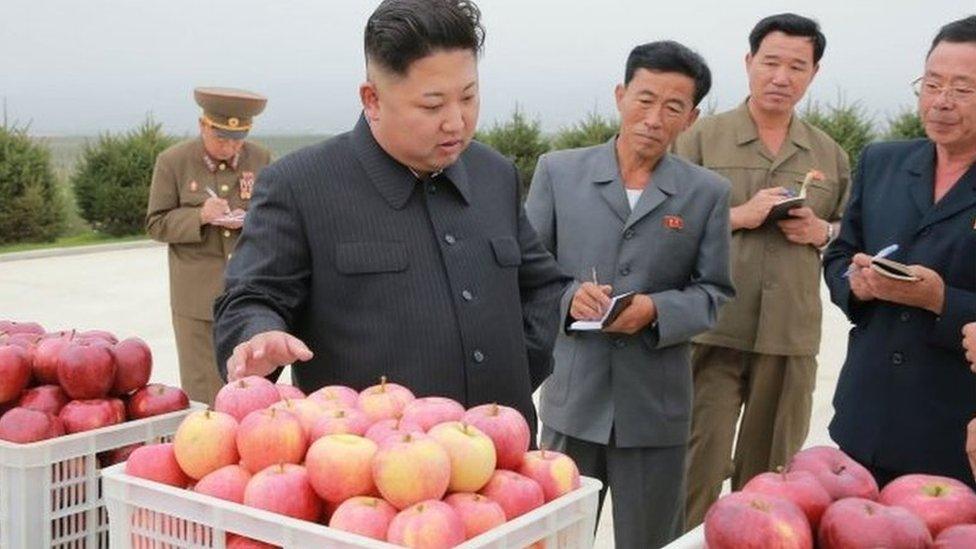Australian student Alek Sigley feared detained in North Korea
- Published
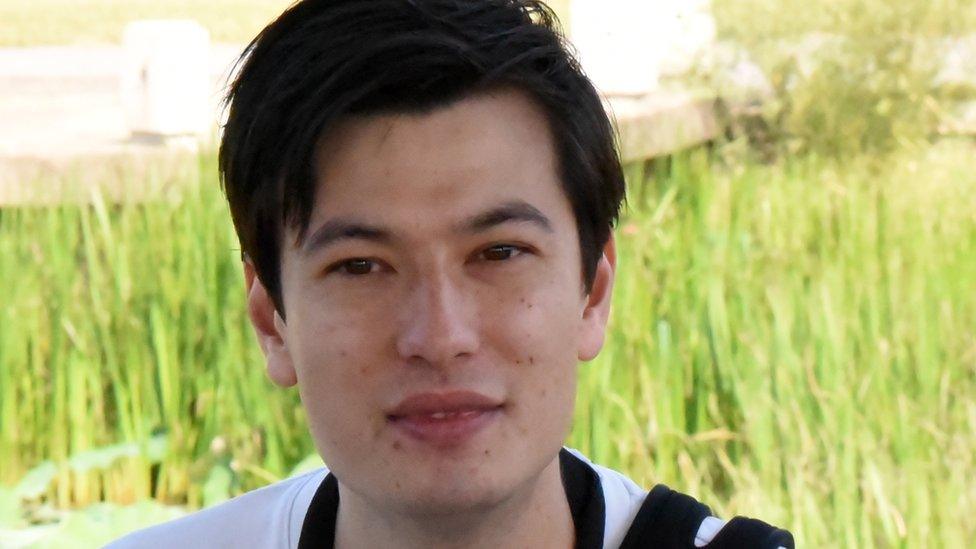
Student Alek Sigley is feared to have been arrested in North Korea
Australia says it is "urgently" seeking to confirm reports that an Australian man has been detained in North Korea.
The family of Alek Sigley, a 29-year-old student living in Pyongyang, could not confirm if he had been arrested, but said he had not been in touch with them since Tuesday.
Australian officials were trying to confirm his situation, his family said.
The government has described it as a "very serious set of circumstances".
Representatives in South Korea had contacted "relevant officials" in North Korea, one minister said.
"It has not been confirmed that Alek has been detained in the DPRK," his family said in a statement on Thursday.
"The situation is that Alek has not been in digital contact with friends and family since Tuesday morning Australian time, which is unusual for him."
It is not known why Mr Sigley, an Asian scholar and fluent Korean speaker, might have been detained. His friends had reported him missing earlier this week, the Australian Broadcasting Corporation reported.
Who is Alek Sigley?
Originally from Perth, Mr Sigley has been living in North Korea for the past year while pursuing a master's degree in Korean literature at Kim Il-sung University.
It is rare but not unheard of for students to attend North Korean universities or to go there on an exchange programme.
According to Chinese state media, the Chinese government offers 60 students full scholarships to North Korean universities each year, external. About 70 other Chinese students pay their own way there.
Mr Sigley is one of a handful of Western students living in the country.
He also runs a business providing tours for Western tourists visiting the totalitarian, communist state. He first visited in 2012 in the first of several trips, his family said.
In March, he described himself as "the only Australian living in North Korea", external in a piece published by The Guardian.
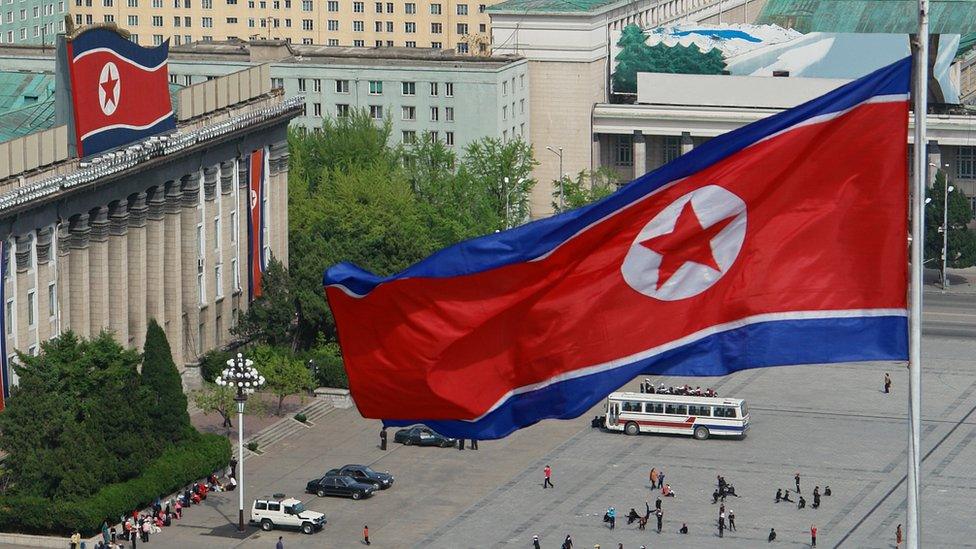
The scholar had been living and studying in Pyongyang
He said he had become interested in living in North Korea after meeting some citizens while studying in China.
"As a long-term foreign resident on a student visa, I have nearly unprecedented access to Pyongyang," he wrote.
"I'm free to wander around the city, without anyone accompanying me."
What is life like in North Korea?
Last year, he told Sky News that as a Westerner he had "never felt threatened" living in North Korea, despite some high-profile cases involving foreigners.
Have foreigners been detained before?
Several foreigners have previously been detained in North Korea, sometimes for illegally entering the country or for what Pyongyang terms "hostile criminal acts against the state".
In 2014, Australian John Short was detained and deported after apparently leaving Christian pamphlets at a tourist site.
Religious activity is severely restricted in the North and missionaries have been arrested on many occasions.
US student Otto Warmbier was jailed in North Korea in 2016 after being accused of stealing a propaganda sign during an organised tour.
He spent 17 months in detention, and later died days after he was returned to the US in a coma.
North Korea denied mistreating the 22-year-old student, but his parents insist his death in July 2017 was the consequence of torture.
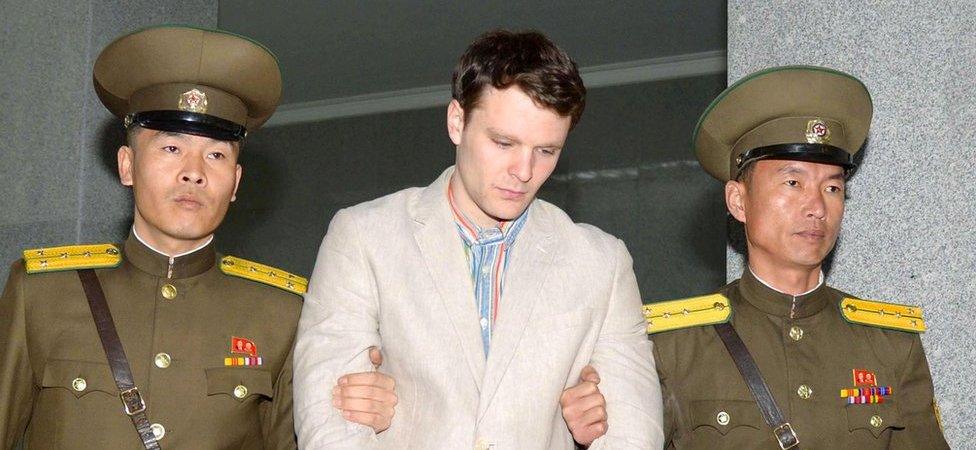
Otto Warmbier (C) was arrested in North Korea as a tourist in 2016
The UN has criticised North Korea's record on human rights, saying citizens in the totalitarian state live under "systematic, widespread and gross human rights violations".
Despite recent historic meetings with the US and South Korea, North Korea remains isolated from the world due to tensions over its nuclear ambitions.
Like many other Western nations, Australia does not have an embassy in North Korea. It has limited diplomatic access through the Swedish embassy.
Australia's Prime Minister Scott Morrison is currently in Osaka, Japan where he is due to meet other world leaders at the G20 Summit.
- Published22 June 2017
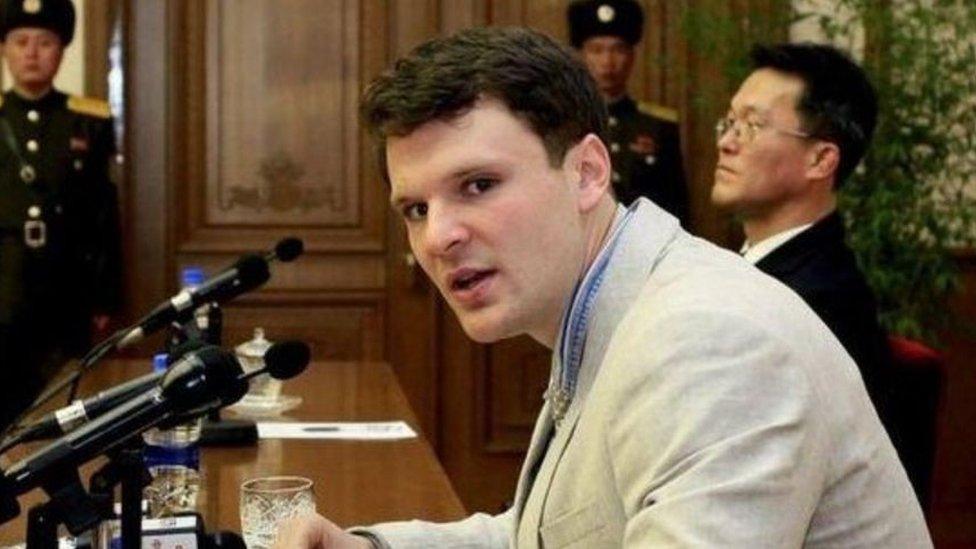
- Published21 September 2016
